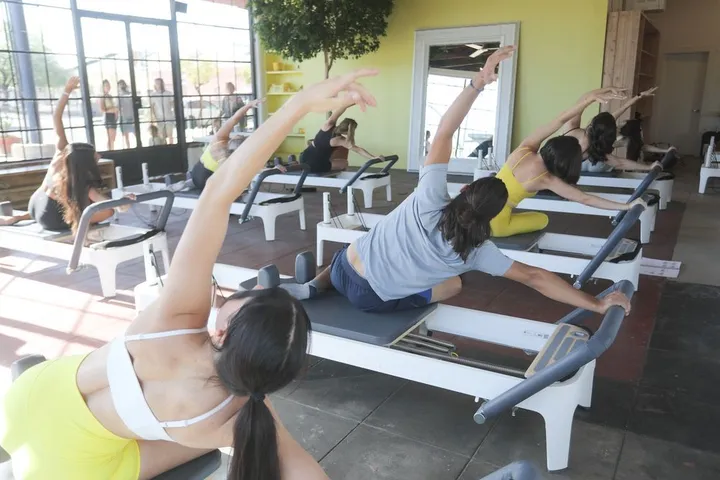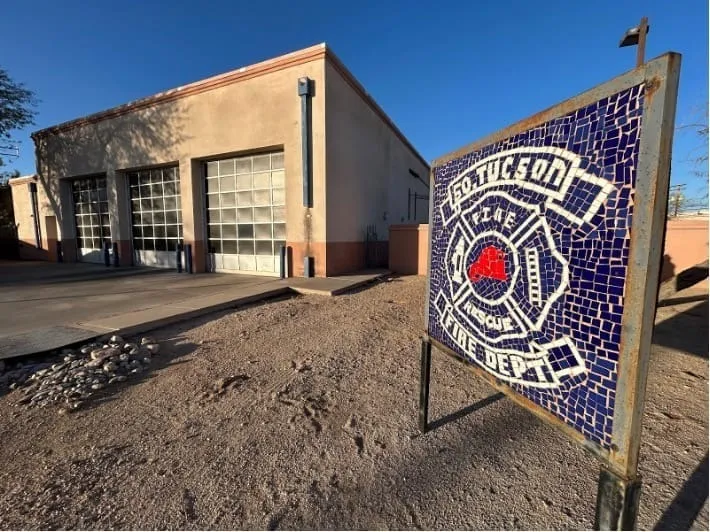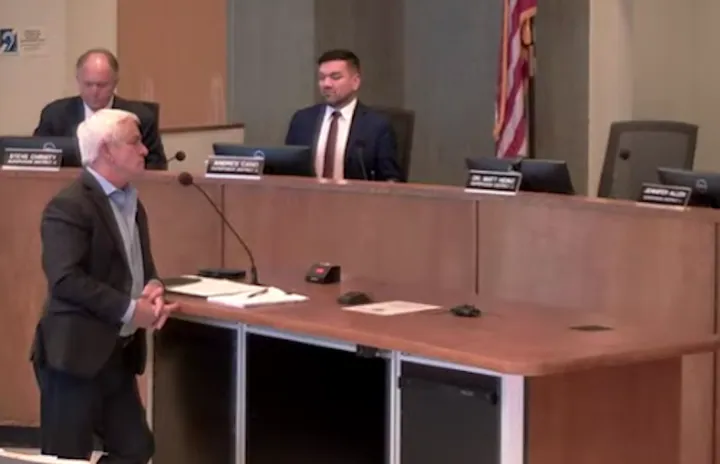Tucson joins nationwide ‘No Kings’ protests
Thousands gathered across the city Saturday as part of the nationwide “No Kings” protests, calling for democracy, representation and human rights.
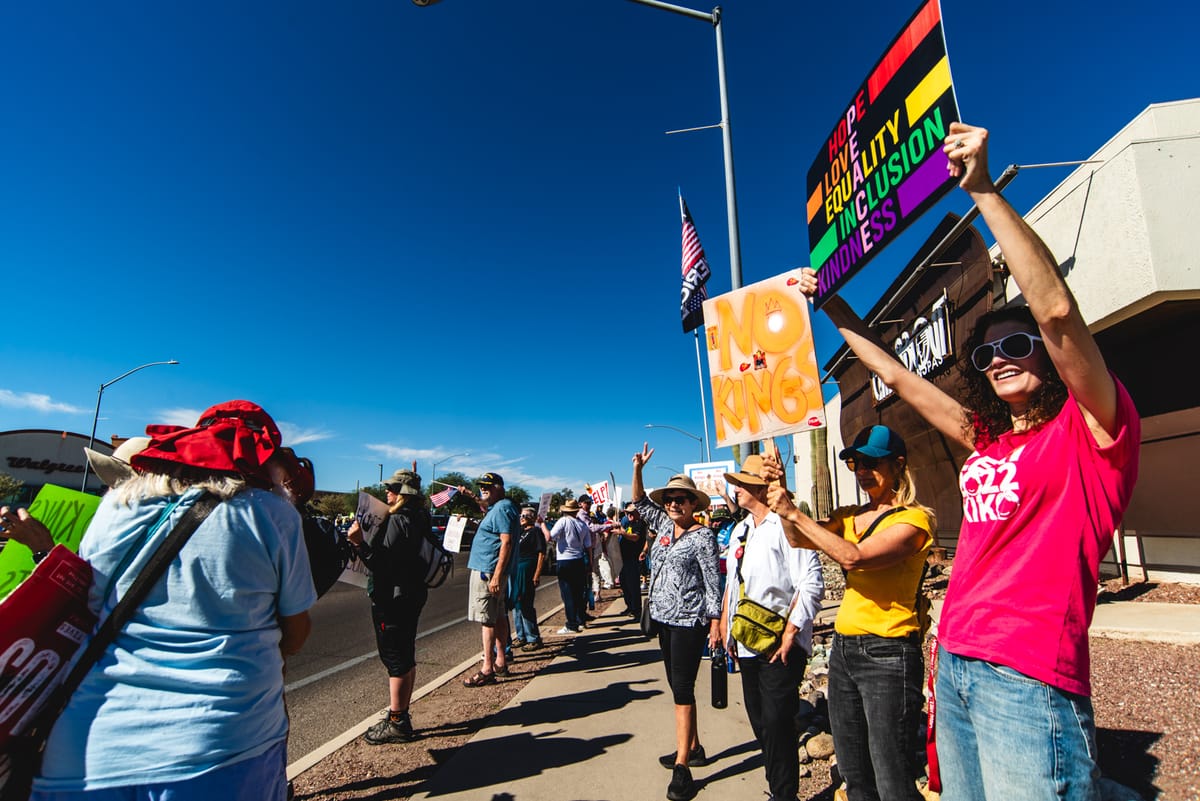
A cold morning gave way to sunshine as thousands of residents marched through Tucson’s streets Saturday for the nationwide “No Kings” protest, joining demonstrators across the country to denounce the Trump administration and call for action on issues ranging from democracy to local representation.
The nationwide “No Kings” protests were organized to oppose what participants described as unconstitutional overreach by the Trump administration and a growing threat to democratic principles. The name references America’s founding belief that no single ruler should govern its people.
It was a brisk 54 degrees when the first wave of protesters took to the sidewalk along Congress Street, marching west. The group started at the MLK apartments, looped around the federal buildings and City Hall, and ended at El Presidio Park.
The crowd gathered around the park fountain to hear from speakers, their voices often drowned out by waves of cheers and cries from the audience.
Across the park, chants rose from different corners, including “Free Palestine,” “Dump Donald Trump” and “Swear her in,” a nod to U.S. Rep.-elect Adelita Grijalva’s delayed swearing-in. Grijalva won the special election Sept. 23 to represent Arizona’s 7th Congressional District, a seat she secured following the death of her father, longtime Rep. Raúl Grijalva.
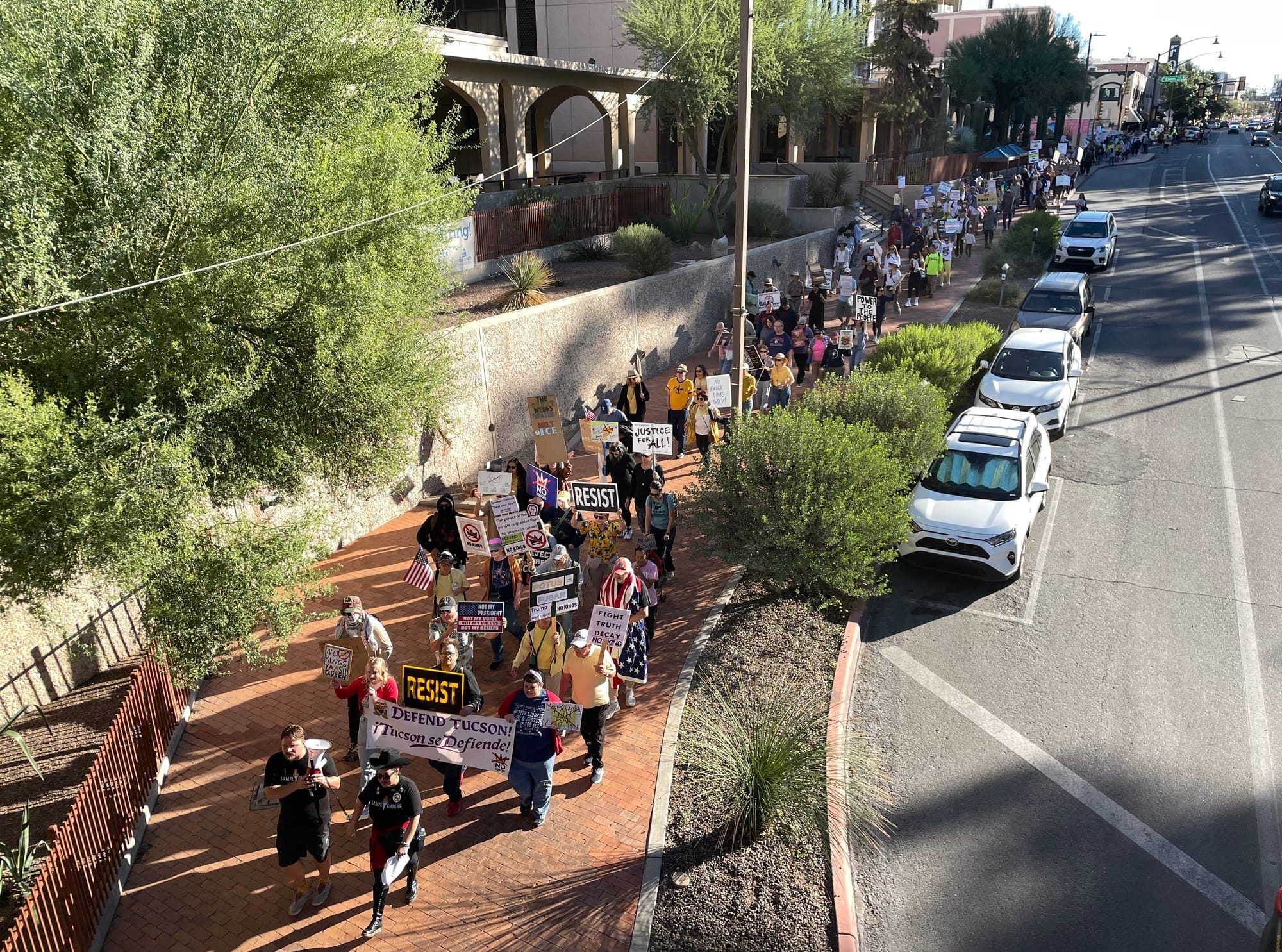
Despite the serious nature of the issues being protested, the atmosphere was lively. People were smiling, children played, and at least two dance parties broke out in the crowd as Bob Marley and The Wailers’ “Get Up, Stand Up” played over a loudspeaker. With no counterprotesters and only a minimal law enforcement presence, the event remained peaceful.
“Rights were being violated for fieldworkers when I was a kid,” said attendee James Peña, a 63-year-old landscaper. Peña and his father were working in the fields when César Chávez founded the United Farm Workers and organized to improve conditions through strikes and boycotts. He said the fervor he witnessed at Saturday’s protest mirrored that of the farmworkers he watched fight for their rights when he was young.
Peña is an American citizen by birthright, along with his parents. President Donald Trump has renewed calls to end birthright citizenship, a proposal that remains a key point of debate in his administration.
“Trump is doing things that are pretty scary,” Peña said. “I believe the majority of people don’t want what he’s trying to sell.”
Gilda Gastelo, a 14-year-old student, came down from Florence with her father to participate in the protest.
“We’re all just like a big community, united in protesting against fascist people,” she said. “This is for our rights. This is for our people, and if you don’t fight, how can we move forward and progress?”
Another crowd gathered at East Speedway Boulevard and North Country Club Road, where thousands of people lined the sidewalks, waving signs and cheering as cars honked in support.
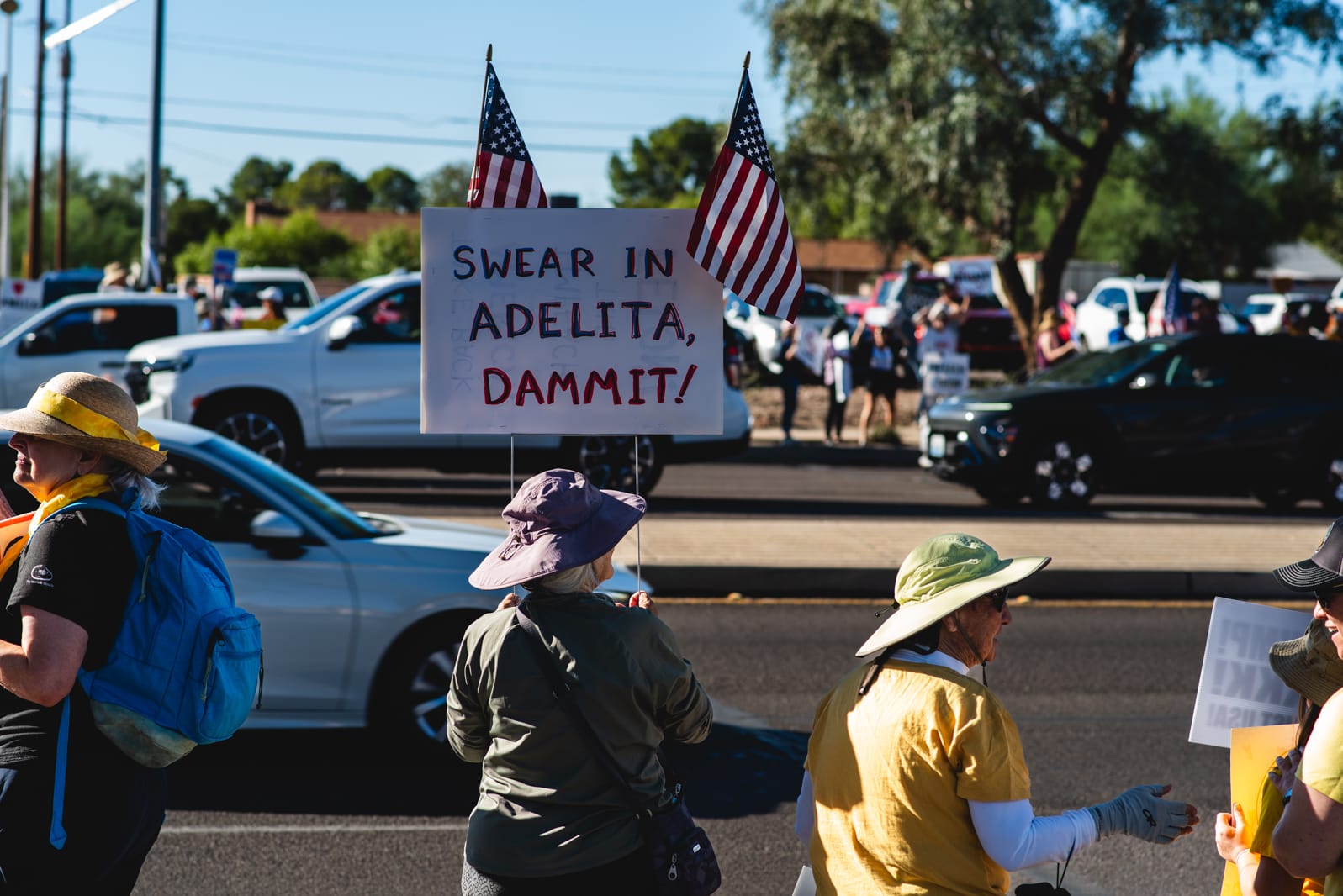
Participants expressed frustration over issues including labor rights, immigration and what they described as threats to democracy under the Trump administration, among them, the lack of representation in Congressional District 7.
“Representatives, they are the direct connection to our community. We have no voice in Washington if we don’t have representatives there to do the work,” said attendee Chad Adams.
Higher-education policy was also a concern for some attendees, with the University of Arizona still weighing whether to sign the Trump administration’s Compact for Academic Excellence in Higher Education, a proposal offering preferential federal funding to universities in exchange for policy commitments on admissions, hiring, tuition freezes and international enrollment.
“It’s an extortion attempt over our universities,” said UA employee Kristen Gregory. “We have to turn over certain student data to the Department of Homeland Security. They want control over what we can teach and what we can research, which violates our right to (free) speech.”
The University of Arizona was one of nine schools invited to sign the compact, announcing earlier this week that it “has not agreed to the terms outlined in the draft proposal,” instead submitting its own statement of principles.
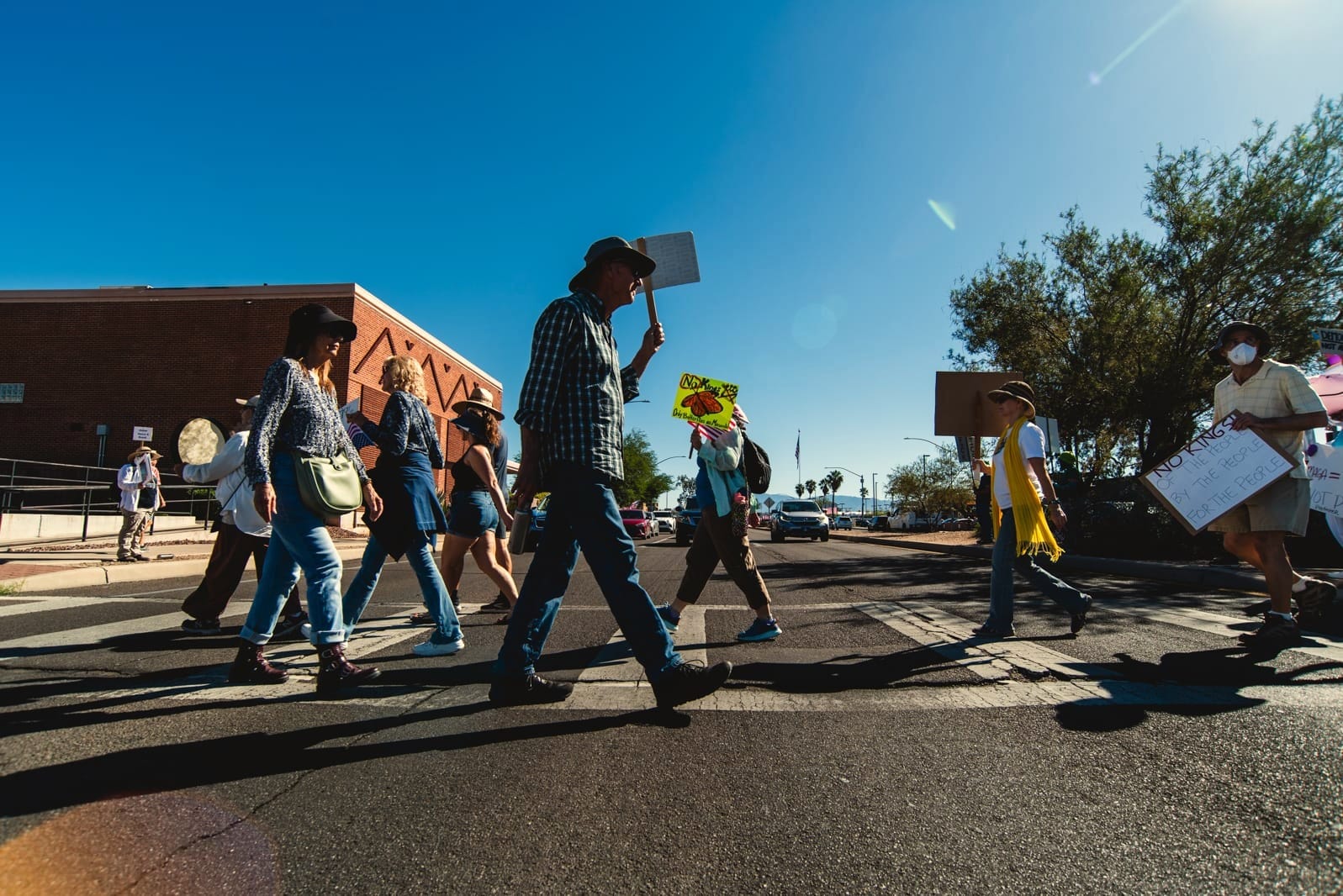
The sidewalks were filled with people, but the atmosphere stayed calm and upbeat: people waved and cheered from their cars, volunteers handed out water, and marchers shared a sense of community and solidarity.
“I think that the more nonsense people go through, the more people realize that, okay, I do have someone else in the fight with me,“ said a volunteer at a stand for print shop The Gloo Factory.
Some attendees used the event to highlight global issues and draw connections between struggles for justice at home and abroad.
Trista Tamura, the granddaughter of a Japanese American concentration camp survivor, attended the protest wearing a sign calling for an end to the violence in Gaza. She said that when she protested in late 2023, it was harder to talk publicly about Gaza, but she felt compelled to speak out rather than stay silent.
As protesters shared messages of solidarity on a range of issues, others reflected on how activism differs across places and cultures.
Yusef Shelm, a French American who has attended about 20 protests, most of them in France, said the No Kings protests he’s seen have been more organized, but less frequent than those in France.
“The more you protest, the more you send a message,” he said, adding that the protests in France are random but frequent.
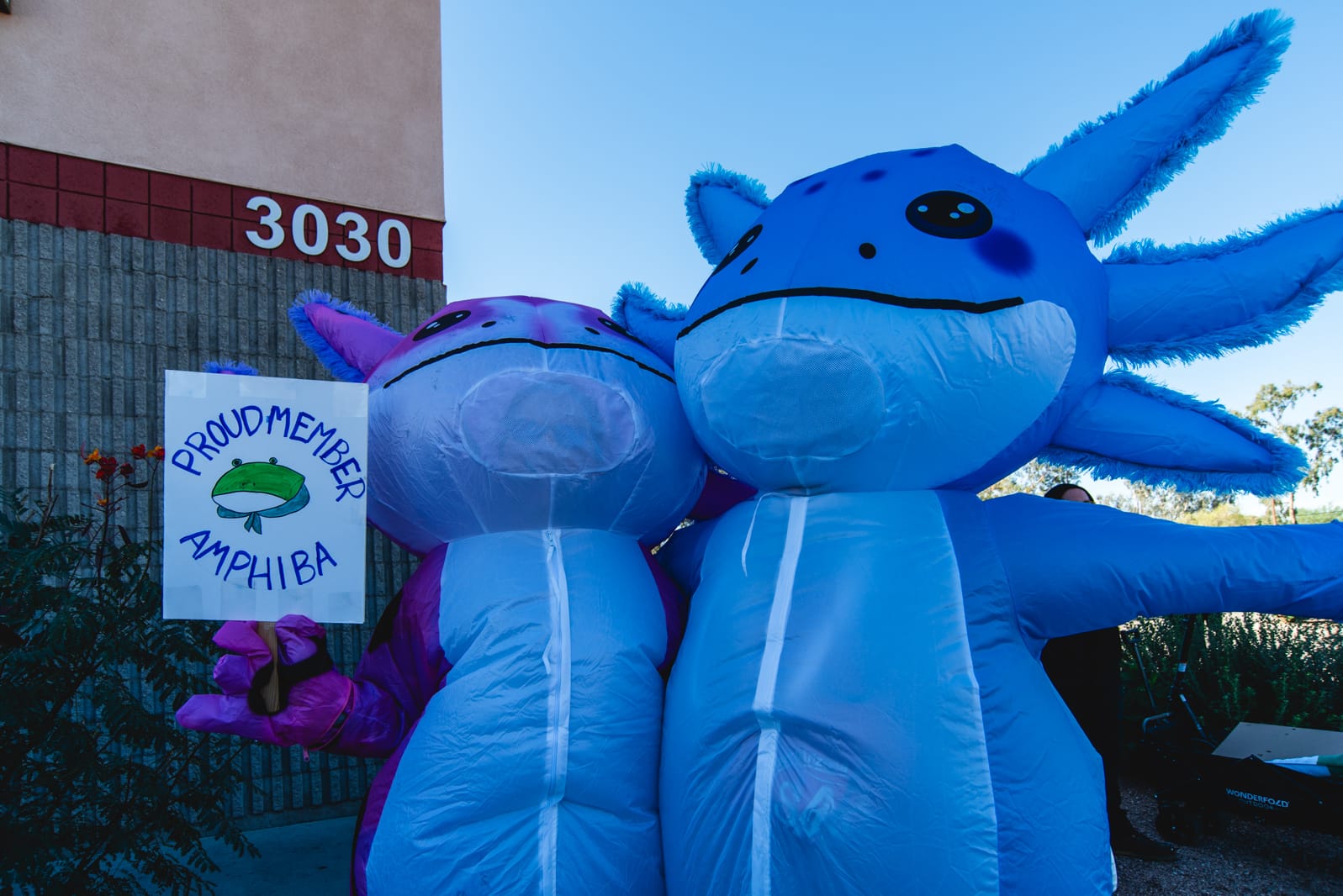
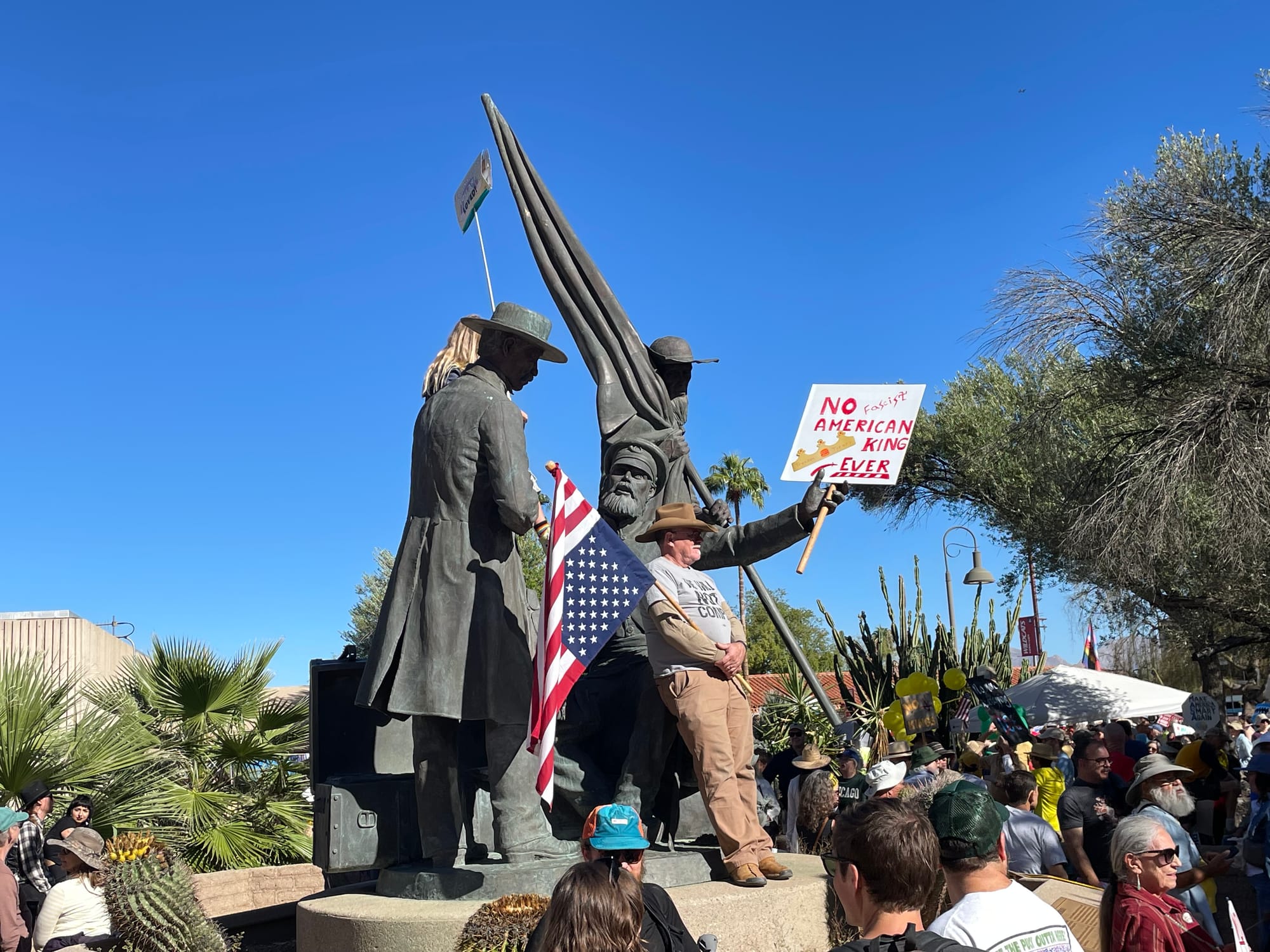
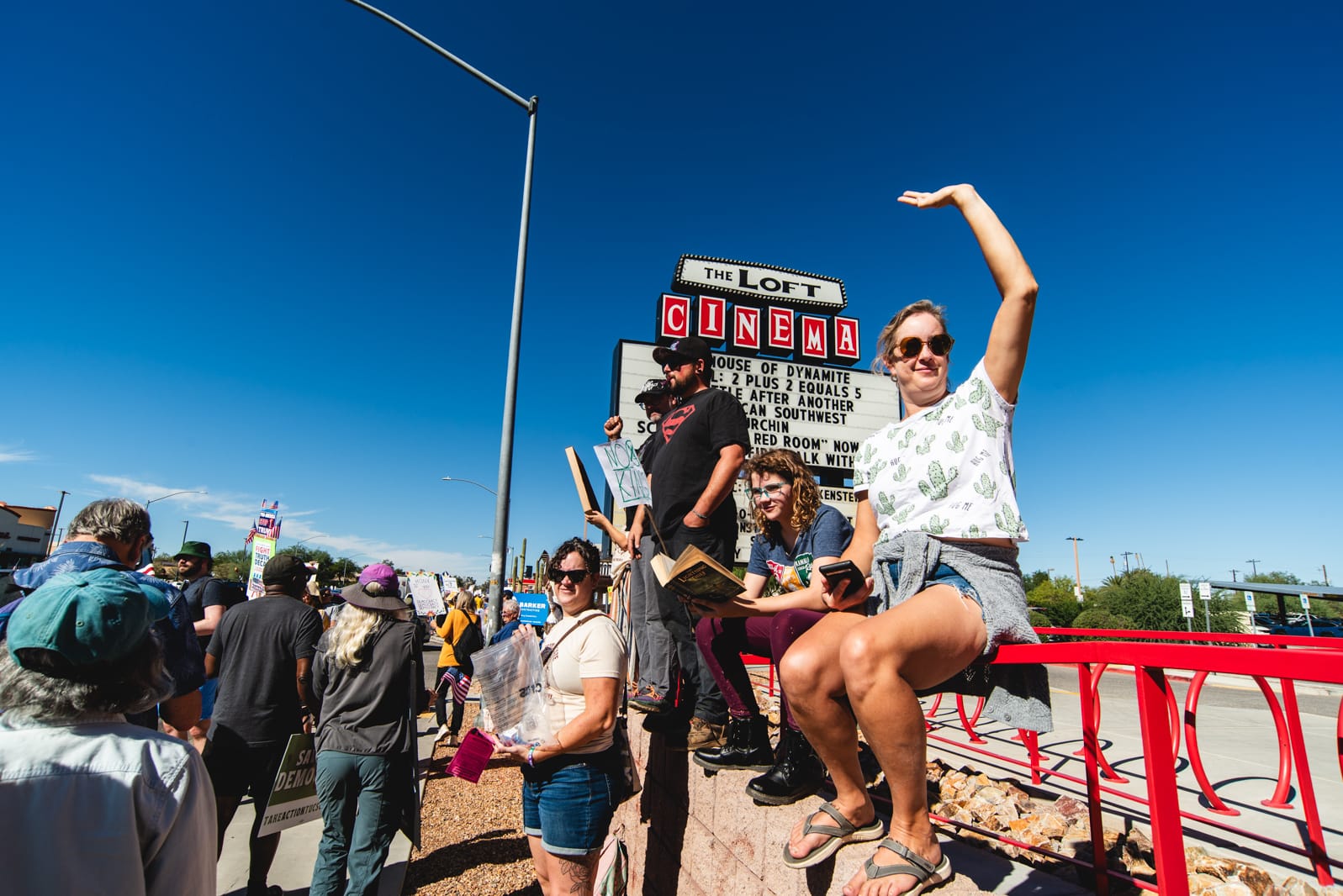
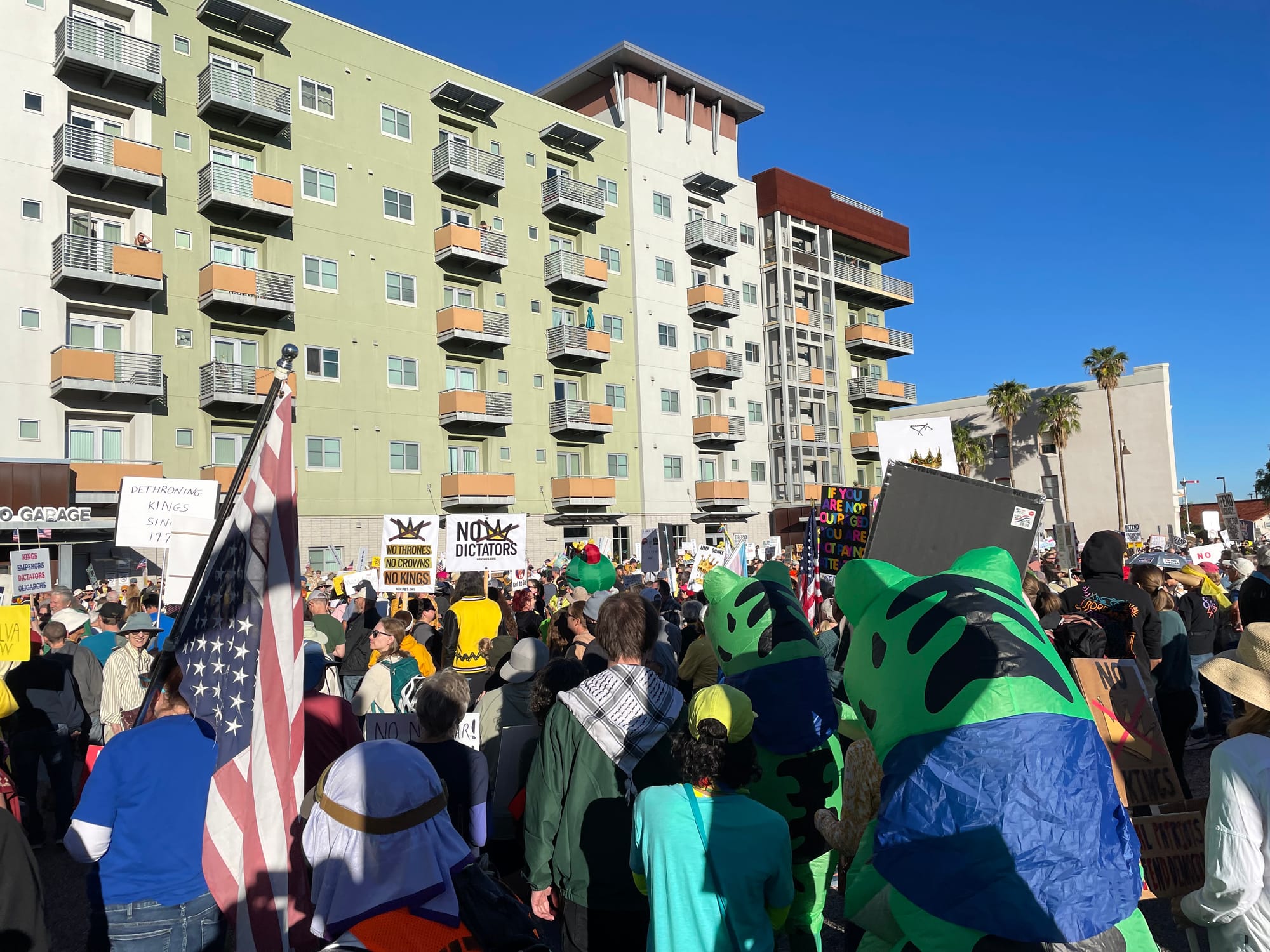
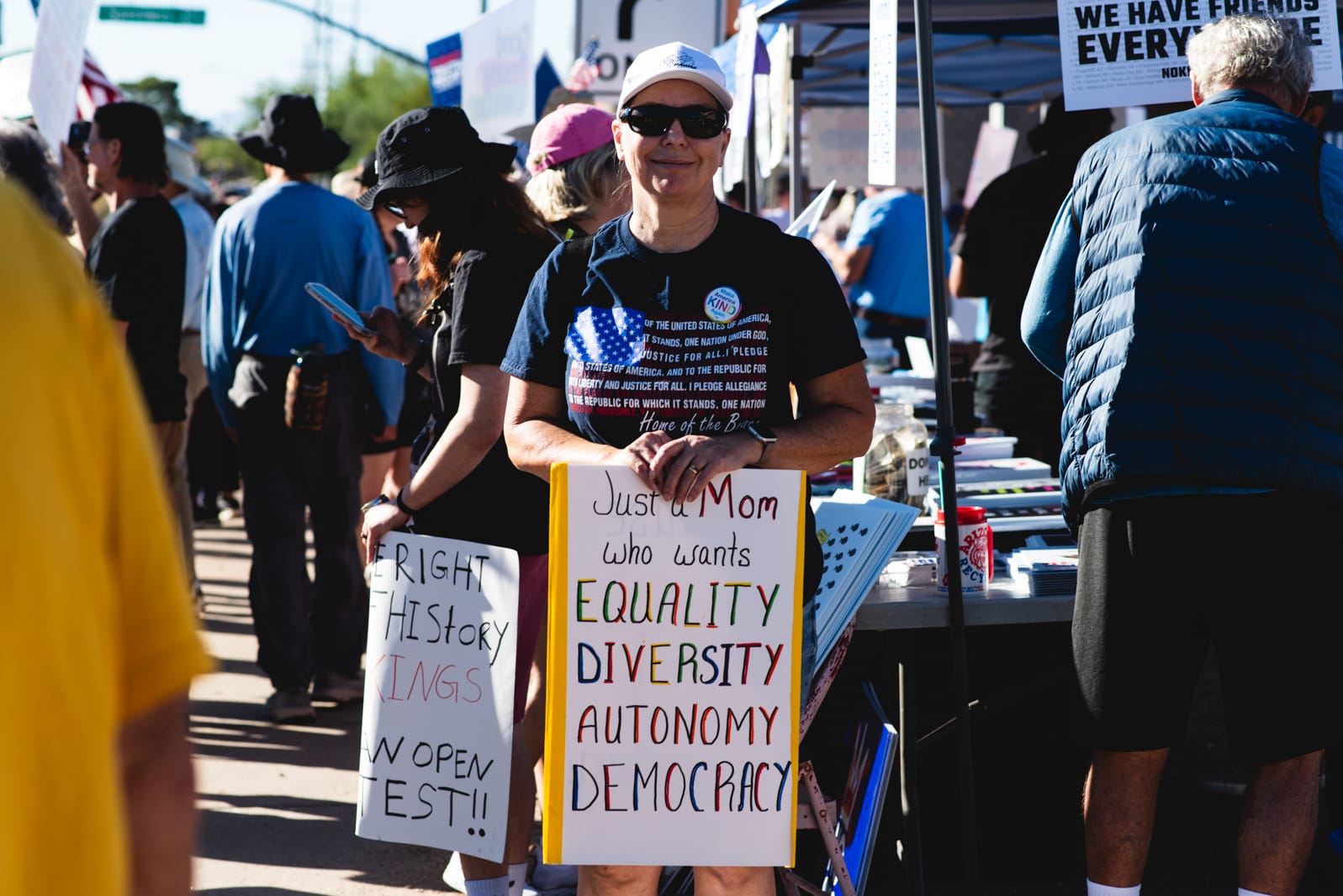
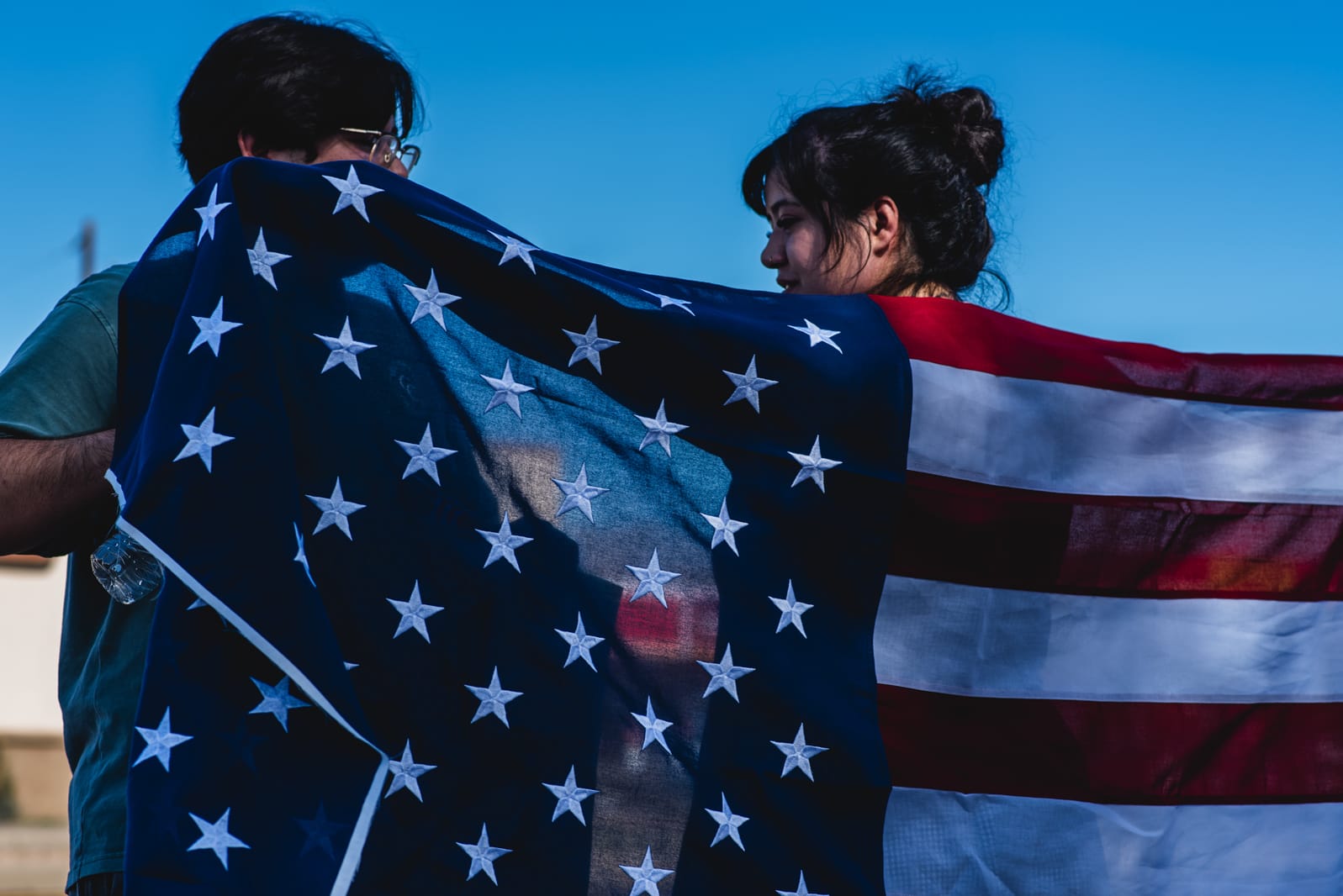
Quentin Agnello and Marlon Bedoy / Tucson Spoglight.
Quentin Agnello is a journalism major at the University of Arizona and Tucson Spotlight intern. Contact him at qagnello@arizona.edu.
Marlon Bedoy is a Pima Community College student and Tucson Spotlight intern. Contact him at marl.star.nn@gmail.com.
Tucson Spotlight is a community-based newsroom that provides paid opportunities for students and rising journalists in Southern Arizona. Please consider supporting our work with a tax-deductible donation.

